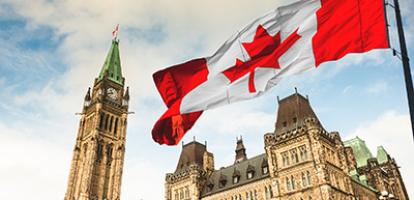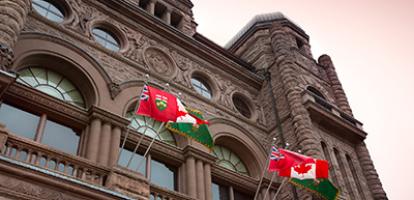Even with a new team in the White House in 2021 and a return to a healthy and respectful bilateral relationship, trade differences with our American friends will not disappear. And in addition to some tough Canada-U.S. files, there are other trade issues confronting the Canadian government, notably in respect of China, but including at the World Trade Organization, as well. All of this will require careful handling as we enter the new year.
Maintaining and improving trade relations with the U.S. will always be our top priority. Even with the Democrats in office and CUSMA a done deal, there will be trade irritants. And the Americans will always be tough and demanding. CUSMA created a Free Trade Commission that charges the responsible ministers from each country with supervising the agreement: making sure its joint committees and working groups function; dealing with ongoing technical matters; and smoothing over any irritants before an all-out dispute emerges. We need to make sure the commission fulfills its mandate and these sub-bodies work well.
There is a tendency to assume that once a trade deal is concluded, everything else will magically follow. But fully exploiting the benefits of trade agreements requires sustained effort. This is mostly up to the business community, working closely with the Prime Minister’s Office when it comes to U.S. trade, and with the trade minister’s office, which handles all other trade matters.
In this regard, it is puzzling that Justin Trudeau created a newly combined Ministry of Small Business, Export Promotion and International Trade, with “trade” — oddly — coming at the end in the title. Small business is in many ways Canada’s economic bedrock, but how its interests and international trade coincide in the policy domain is not entirely clear. Small businesses typically don’t trade internationally. So why mix up the minister’s responsibilities this way?
Whether we are talking about trade with the Americans or with the rest of the world, the government’s overriding objective must be — first and foremost — to advance Canadian economic interests. That means productive, well-paying jobs. Providing the best framework for Canadians to take advantage of their expertise and experience is the ultimate trade policy objective. Filling in that framework will be the private sector’s responsibility. But we must get the policy right.
As for the World Trade Organization, heralded at its 1995 founding as a paramount global institution, it is currently under severe stress. This is often laid at Donald Trump’s door but actually goes back years before his ascendancy. The WTO has not been able to keep pace with ultra-fast changes in global trade, specifically digital services and e-commerce, or important trade-related concerns during the current pandemic, such as domestic control over medical supplies. These are deep-seated, institutional shortcomings whose resolution will not be easy. Canada will be working with like-minded governments to build consensus in the “Ottawa Group,” formed under our lead last year. This will require the minister’s close attention and, from time to time, arm-twisting of his or her international counterparts.
An immediate WTO challenge is to restore the working of the Appellate Body, the final court of appeal for trade disputes. The U.S. has been blocking appointments to it, which made the entire WTO dispute-settlement system dysfunctional. Though president-elect Joe Biden is committed to renewed U.S. engagement with the WTO, resolving these issues will not be easy. Returning dispute settlement to health would be a major step in the WTO’s rejuvenation and should be a priority item on the minister’s agenda.
The next set of WTO issues is longer-term. Three main areas deserve close attention. First, coming out of the COVID-19 crisis, new rules are needed to deal with trade and human health, notably to ensure pharmaceuticals can flow to countries in need. Second, there have to be greater disciplines on the expanding global activities of state enterprises (e.g., China’s) and to deal with the effect of pandemic-related subsidies for businesses. The current WTO rules were developed decades ago and are in desperate need of updating. And, third, there has to be a way out of the straitjacket of requiring unanimity before new trade rules can be approved. The demise of the Doha Round negotiations, which began in 2001 and were never completed, brought home the need for a new approach, allowing negotiations among like-minded governments on discrete issues, without the need for all WTO members to participate or the requirement that deals agreed to must be extended to all members on a most-favoured-nation (MFN) basis.
Other trade issues will also confront Canada in the new year, including settling trade relations with a post-Brexit U.K., expanding trade with ASEAN countries and a host of others. But making CUSMA work and fixing the WTO should be top of the prime minister’s list.
Published in the Financial Post
Lawrence Herman, a former Canadian diplomat, is counsel at Herman & Associates and a senior fellow of the C.D. Howe Institute in Toronto.





